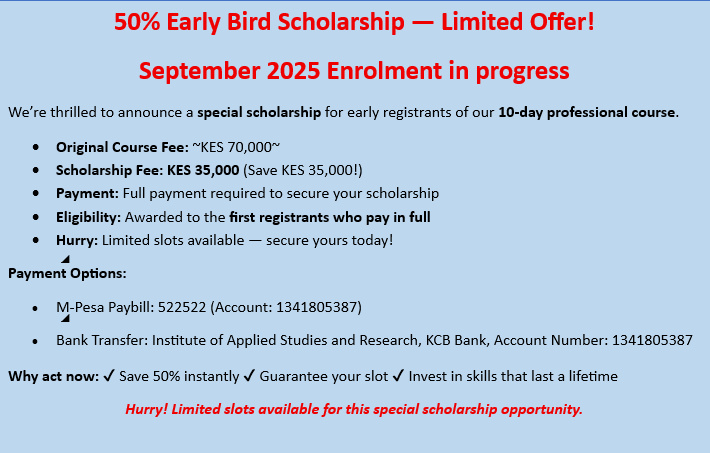Research Design and Methodology [RDM]

Course Overview:
This course provides participants with a thorough understanding of the principles and practices of research design and methodology tailored for complex humanitarian and development contexts. It equips learners with the skills to select appropriate research designs, develop data collection tools, and implement robust research approaches that generate credible and actionable evidence for policy and program decision-making.
Learning Objectives:
By the end of the course, participants will be able to:
- Differentiate between various research designs and select the most appropriate for their study objectives.
- Develop clear, focused research questions and hypotheses.
- Understand the strengths and limitations of qualitative, quantitative, and mixed methods.
- Design effective data collection strategies including sampling and instrument development.
- Apply ethical principles in research design.
- Plan for data management, quality assurance, and analysis.
- Integrate participatory and context-sensitive approaches in research.
Topics Covered:
Purpose of research design; Types of research (exploratory, descriptive, explanatory, evaluative)
Key Tools & Techniques:
Conceptual frameworks; Research questions
Target Audience:
- Research Officers and Analysts
- Monitoring and Evaluation Professionals
- Program Managers and Coordinators
- Academic and Field Researchers
- NGO and UN staff involved in data collection and analysis
Training Methods:
- Interactive lectures and discussions
- Hands-on exercises in designing research questions and instruments
- Group work on sampling and research design case studies
- Practical sessions for developing data collection tools
- Ethical dilemma role-plays
- Peer reviews and feedback on draft research proposals
Certification:
Participants will receive a Certificate of Completion after successfully participating in course activities and submitting a draft research design or proposal.
Cost: 70,000/=
